Women in Queen Square have received numerous honours and awards in recent years, including Fellows of Royal Society and Academy of Medical Sciences, first female president of ABN, ARUK Early career investigator of the Year, Leslie Gehry Brenner prize for Innovation in Science, Cotzias Award, Yahr Award, and Honorary Membership of the Royal Irish Academy.
See also International Women's Day, Women in Science, Celebrating People at ION and Student stories
Professor Mary Reilly
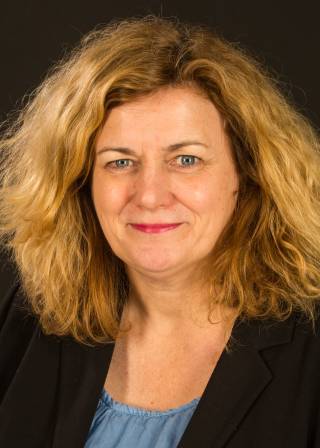
Professor Reilly has been a consultant Neurologist at Queen Square since 1998 and was promoted to Professor of Clinical Neurology at UCL in 2010. She is Head of the Division of Clinical Neurology and Co-Director of the MRC Centre for Neuromuscular Diseases.
In 2017, Professor Reilly became the first women to be President if the Association of British Neurologists, 85 years after it was first established in 1932.
Professor Reilly is internationally recognised for her expertise in research and clinical practice related to peripheral nerve diseases.
Professor Tammaryn Lashley
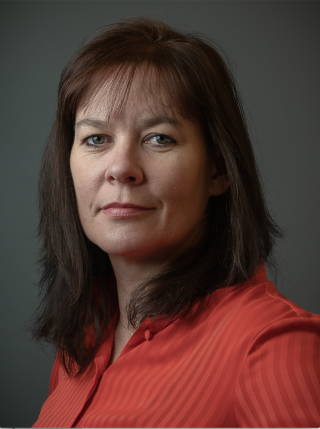
Professor Lashley is an Alzheimer's Research UK Senior Research Fellow and Professor of Neuroscience at the Department of Neurodegenerative Disease, UCL Queen Square Institute of Neurology.
Professor Lashley completed her PhD in 2006 investigating the pathology of familial British dementia (FBD) and familial Danish dementia (FDD) providing detailed information about amyloid formation in the brain in these rare conditions, which have similar neuropathological features to those of Alzheimer’s disease (AD) thus providing a model of AD. She is currently focusing her research on frontotemporal dementias (FTLD) currently funded by the Alzheimer’s Research UK fellowship. FTLD's are a large group of dementia's characterized by the deposition of several different proteins. Initial work was carried out to re-diagnose archival cases with the new classifications set out by the FTLD working group. Comparing the underlying pathology with detailed clinical histories therefore enabling a more accurate diagnosis in life for future patients. Her work has now progressed into investigating how the pathological proteins are involved in FTLD, with particular interest in the proteins TDP-43 and FUS and their role in nuclear transport.
Professor Selina Wray
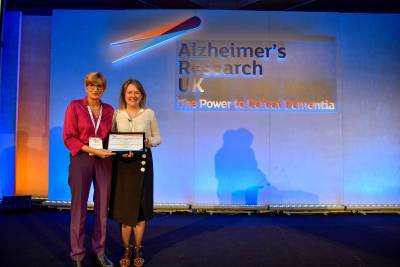
Professor Wray is Professor of Molecular Neuroscience at the Department of Neurodegenerative Diseases. She investigates how the tau protein, which builds up in the brain during Alzheimer's disease and frontotemporal dementia, causes damage to nerve cells in the brain.
Alzheimer's Research UK is currently a major funder of Dr Wray's work; however this prize also recognises her involvement outside the lab: hosting lab tours for supporters and politicians, speaking at public events, and appearing in the media.
Professor Cathy Price
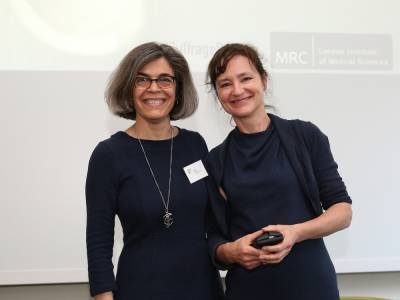
Professor Price is Professor of Cognitive Neuroscience, and Head of the Department of Imaging Neuroscience. Cathy is a pioneer in brain-imaging and in the study of language in the human brain, whose current research aims to predict and explain language outcome and recovery after stroke and other forms of brain damage. The Wellcome Centre for Neuroimaging led by Professor Cathy Price FRS FMedSci was recently renewed for a further five years with a funding injection of £11M
Professor Sonia Gandhi

Professor Gandhi is a Professor of Neurology at the Department of Clinical and Movement Neurosciences, UCL Queen Square Institute of Neurology, and Group Leader at the Francis Crick Institute. She has expertise in the process of protein misfolding, in which smaller proteins, monomers, joining together to form larger proteins, oligomers, and how this process may drive organellar dysfunction and cell toxicity in neurodegeneration.
Sonia obtained a BA in Neuroscience at Trinity College, University of Cambridge, in 1996, and completed her degree in Medicine at New College, University of Oxford, in 1999. She trained in postgraduate medicine at the Hammersmith Hospital, Royal Brompton Hospital, National Hospital for Neurology and Neurosurgery, and Whittington Hospital.
Professor Gandhi was awarded a Wellcome Clinical Research Training Fellowship to complete a PhD in Neuroscience at UCL Institute of Neurology in 2004. In 2007, she trained as a Specialist registrar in Neurology, and took up an NIHR Lectureship in Neurology at Imperial College in 2009. In 2012 she was awarded a Wellcome Trust Intermediate Clinical Fellowship, and established her laboratory at the UCL Institute of Neurology in October 2013. She was awarded a laboratory secondment to the Francis Crick Institute in 2016.
Professor Lisa Cipolotti
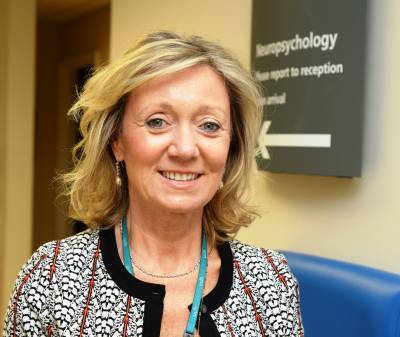
Professor Lisa Cipolotti has been the Head of the Neuropsychology Department at The National Hospital for Neurology and Neurosurgery since 1995. Under her direction, it has become the largest Neuropsychology Department in Britain treating more than 7,000 patients per year. In addition, it has an international reputation for its clinical and basic research as well its clinical service. She directs clinical evaluation and care, supervises and teaches the next generation of neuropsychologists and has designed a number of novel assessment tools now used around the world.
In 2007, while being a full time clinician, she became Professor of Neuropsychology at the UCL Queen Square Institute of Neurology. Her programme of research has focused on understanding the cognitive seqauelea of neurological conditions, in order to develop accurate diagnosis of impairments arising from brain disease or injury. Her basic research, particularly on amnesia, acalculia and frontal functions, has been highly cited. She has published over 220 influential publications in major international journals, successfully obtained competitive research grants of over £5m and collaborated/supported the research activities of many departments of the IoN.
Professor Linda Greensmith

Professor Linda Greensmith is Professor of Neuroscience and Head of the Department of Neuromuscular Diseases. She is recognized and widely respected internationally for her basic and translational work on neuromuscular disorders, especially motor neuron disease.
Professor Greensmith is a world expert on animal models of neurodegenerative disease, with a strong track record of translating basic science into experimental medicine studies.
Professor Martina Callaghan

Professor Martina Callaghan is a Professor of MRI Physics and Head of the Physics Group at The Wellcome Centre for Human Neuroimaging, where she is also Deputy Director.
Her research focuses on pulse sequence design for MRI data acquisition, bespoke image reconstruction schemes, and the development of post-processing and data modelling tools for the neuroimaging platforms at the Centre (1 x 7T and 2 x 3T MRI scanners).
The methods developed by the Physics Groups are used by a wide array of researchers around Queen Square who aim to better understand the structure and function of the human brain in health and disease. The collective aim is to use this knowledge to inform prognoses and treatments for patients with neurological and psychiatric disorders.
Professor Eleanor Maguire

Professor Eleanor Maguire is Professor of Cognitive Neuroscience at The Wellcome Centre for Human Neuroimaging.
Professor Maquire research focuses on using neuroimaging to study how memories are formed, represented and recollected by the human brain.
She has won prizes such as the Ig Nobel Prize for Medicine and the Cognitive Neuroscience Society Young Investigator Award, and is a Fellow of the Academy of Medical Sciences and a Fellow of the Royal Society.
Professor Anette Schrag

Professor Anette Schrag is a Professor of Clinical Neurosciences at the Department of Clinical and Movement Neurosciences, and a Consultant Neurologist at University College London (UCL). Professor Schrag research has focussed on Parkinson’s disease (PD), including clinical and biomarker studies to improve diagnosis and clinical outcomes, clinical management of patients, including the psychiatric, cognitive and other non-motor aspects of Parkinson’s disease and clinical trials for better treatments of PD.
• Professor Schrag's academic profile.
Professor Claudia Wheeler-Kingshott
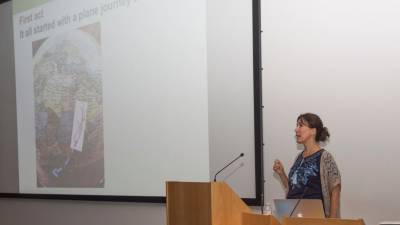 Professor Wheeler-Kingshott is Professor in Magnetic Resonance Physics, Department of Neuroinflammation. She delivered her inaugural lecture in 2017. Transnational development of novel magnetic resonance imaging biomarkers and integration between disciplines has been her overarching goal to contribute to the understanding of pathologies like Multiple Sclerosis.
Professor Wheeler-Kingshott is Professor in Magnetic Resonance Physics, Department of Neuroinflammation. She delivered her inaugural lecture in 2017. Transnational development of novel magnetic resonance imaging biomarkers and integration between disciplines has been her overarching goal to contribute to the understanding of pathologies like Multiple Sclerosis.
Professor Patricia Limousin
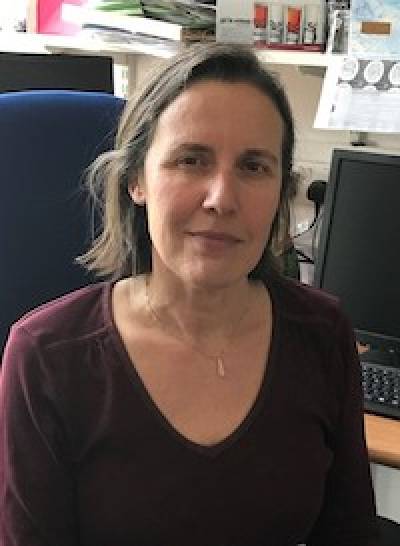
Professor Limousin is Professor of Clinical Neurology, Department of Clinical and Movement Neurosciences. Professor Limousin was a member of the team in Grenoble that, 30 years ago, pioneered high frequency deep brain stimulation in the subthalamic nucleus in patients with Parkinson's disease. Since then, hundreds of thousands of patients around the world benefited from this life changing treatment.
Professor Limousin contribution was invaluable in the formation of the Unit of Functional Neurosurgery in UCL Queen Square Institute of Neurology.
Professor Paola Giunti
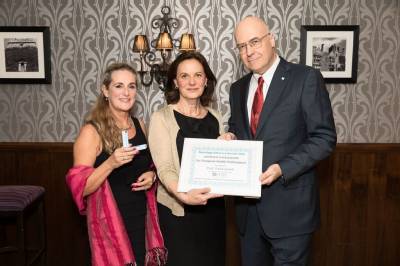
Professor Giunti is a Professorial Research Associate at the Department of Clinical and Movement Neurosciences.
She established the Ataxia Centre at the National Hospital for Neurology and Neurosurgery in 2005, a robust model of translational clinical service. This has been accredited as the first Centre of Clinical Excellence in the UK by Ataxia UK, the charity of ataxia patients. Since then three additional centres have been established and modeled after the Ataxia Centre in the UK.
Professor Jennifer Pocock
Professor Jennifer Pocock is Professor of Cellular Neuroscience working at the Department of Neuroinflammation, UCL Queen Square Institute of Neurology.
Professor Pocock's research focus on understanding the interactions between neurons and glial cells in neuroinflammatory degenerative diseases such as Alzheimer's disease, Multiple sclerosis, Parkinson’s disease and also in acute conditions such as those following stroke. Her aim is to dissect out the pathways of neuronal death which result from microglial activation.
Professor Ros Quinlavin

She moved to UCLH in 2010, where she leads the transition service for adolescents and young adults with neuromuscular disease at GOSH and Queen Square and is clinical lead for the nationally commissioned service for McArdle disease and related disorders. She is joint co-ordinating editor for the Cochrane Neuromuscular Disease Group.
Professor Fiona Ducotterd

Professor Ducotterd transitioned from bench work into leadership roles and has led multiple cross-discipline, scientific projects exploring therapeutic targets for Alzheimer’s disease and other neurological conditions, as well as leading a range of strategic partnerships for different diseases. Most recently, she has been a drug discovery and strategic partnering consultant through her own company, FireWire Consulting LLC, for a range of small biotechnology companies where she has supported late-stage preclinical research programs and contributed to regulatory filings.
Professor Beate Diehl
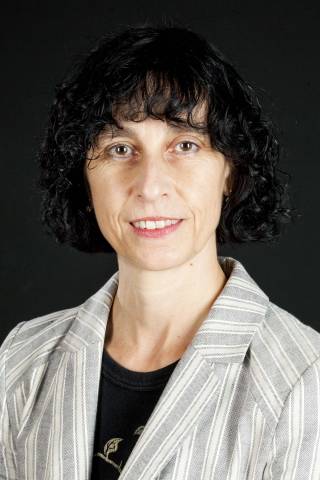
Professor Eileen Joyce

Eileen Joyce is Emeritus Professor of Neuropsychiatry in the Department of Clinical and Movement Neurosciences.
Professor Joyce obtained her first degree, PhD and medical degree from the University of Cambridge. She trained in psychiatry at the Bethlem and Maudsley Hospitals and spent several years as a research worker at the Institute of Psychiatry, where she was a Wellcome Trust Lecturer in Mental Health, and the USA National Institutes of Health. Before moving to UCL/UCLH, she was Professor of Neuropsychiatry at Imperial College London.
Her current research focuses on interventions for neuropsychiatric disorders such as schizophrenia, OCD and Tourette’s syndrome and their mechanisms of action.
Professor Karen Duff

Professor Sallie Baxendale

She has over three decades of clinical experience working with people with epilepsy in London and Oxford and is the current chair of the International League Against Epilepsy Diagnostic Methods Commission. She serves on the Board of Governors for the International Neuropsychological Society. She specialises in the neuropsychological assessment of cognitive and behavioural difficulties in epilepsy and non pharmacological interventions for the condition.
Professor Maria Thom

Professor Thom is Professor of Neuropathology in the Department of Clinical and Experimental Epilepsy, UCL Queen Square Institute of Neurology , and Honorary Secretary of the British Neuropathological Society.
Professor Thom's main diagnostic and research interests are in the field of epilepsy neuropathology. Her aim is to investigate disease biomarkers in tissue samples, that are either a cause or effect of seizures, that can be translated into clinical and diagnostic practice.
Professor Rimona Weil
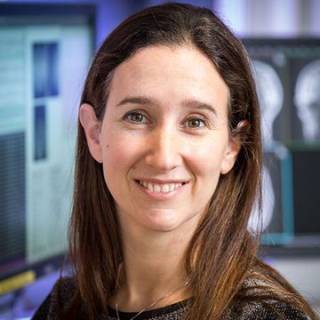
Professor Weil graduated from Downing College, Cambridge in 1998 and went on to study medicine at University College London, qualifying in 2001. Her PhD research examined the integration of visual signals in the healthy and damaged brain and was undertaken at the Wellcome Trust Centre for Neuroimaging, UCL.
After that, she trained as a clinical neurologist at the Royal Free Hospital and National Hospital for Neurology and Neurosurgery. She was awarded a post-doctoral UCL Excellence Fellowship in2014 to study visual changes in Parkinson’s disease. Currently, she holds a Wellcome Clinical Research Career Development Fellowship that supports a longitudinal study onpredictors of dementia in Parkinson’s disease, using neuroimaging, retinal andcognitive markers. Alongside this she is an honorary Consultant Neurologist at the National Hospital for Neurology and Neurosurgery and lead clinics in Parkinson's dementia and Dementia with Lewy Bodies.
Professor Helene Plun-Favreau

Professor Plun-Favreau is Professor of Cellular Neurodegeneration in the Department of Neurodegenerative Diseases.
After a PhD in France (Angers University) in signal transduction, Professor Plun-Favreau did her postdoctoral work with Professor Julian Downward at CRUK. The discoveries and work she did in this area led her towards neurodegeneration and she was successful in being appointed to an MRC Career Development Fellowship to work in the Department of Molecular Neuroscience at UCL Institute of Neurology. Since her arrival in 2007 Helene has carried out some significant work on the molecular pathways associated with mitophagy and other mitochondrial dysfunctions in neurodegenerative disorders. The approaches they have undertaken require live cell microscopy and complex molecular and cellular biology, and provide a more complete picture of the pathways that play a role in the pathogenesis of neurodegeneration.
Professor Olga Ciccarelli

Olga Ciccarelli is a NIHR Research Professor of Neurology and was recently appointed as Head of Department of Neuroinflammation.
She studied Medicine at the University La Sapienza of Rome, Italy, completing her specialist training in Neurology in 1999. She then came to London with the Jacqueline Du Pre award from the MSIF. After her PhD in Neurological Science at the UCL, she was awarded a Wellcome Trust Advanced Clinical Fellowship in 2005. She was appointed Professor of Neurology at the UCL Queen Square Institute of Neurology in 2014. Her research goal is to predict individual treatment response in MS using machine learning. She has secured research funding from research councils and charities, and has authored more than 200 papers. She is an Associate Editor of Neurology, leading on the Neuroimmunology portfolio.
Professor Antonella Spinazzola
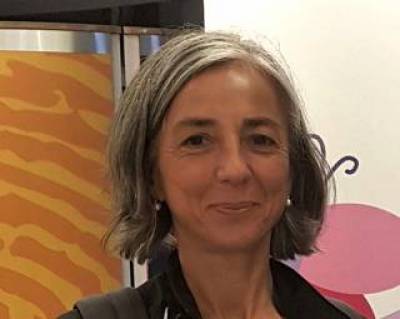
Antonella Spinazzola is a Professor of Neuroscience and Mitochondrial Medicine in the Department of Clinical and Movement Neurosciences. In a medical and scientific career spanning 20 years, she has made major contribution to mitochondrial biology and medicine, from gene discovery to disease mechanisms. Her progress in understanding the pathogenesis of the mitochondrial DNA disorders has led to the identification of candidate therapies, which her group is beginning to test in patients and animal models of mitochondrial DNA diseases. Moreover, her detailed analysis of rare genetic disorders has revealed fundamental aspects of cell and organ biology, which have far reaching implication for common human pathologies, especially neurodegeneration. Thus, she has recently integrated in her research activities that address the role of mitochondrial DNA dysfunction in adult-onset neurodegenerative disorders.
Professor Elizabeth Fisher
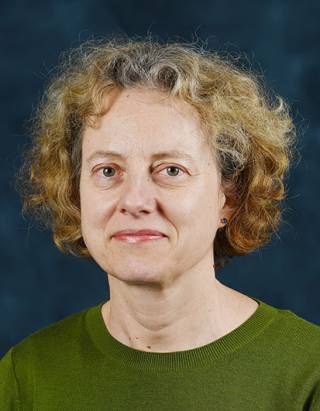
Professor Elizabeth Fisher is Professor of Neurogenetics at the Department of Neuromuscular Diseases, UCL Queen Square Institute of Neurology and she is IoN Athena SWAN lead.
Professor Fisher FMedSci, is a member of the Academy of Medical Sciences Council and has made a major contribution to both mouse and human molecular genetics research. Her early work provided important new insights into the genomic organisation of the X chromosome and into Turner syndrome, resulting in one of the first human positional cloning projects. Her research group has focused on mouse models of neurological disorders with particular interest in motor neuron degeneration and Down syndrome.
Professor Sarah Tabrizi
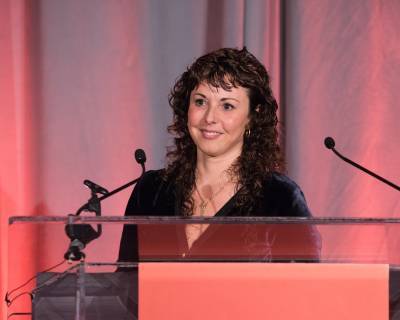
Professor Sarah Tabrizi is Director of the UCL Huntington’s Disease Centre, joint Head of Department Neurodegenerative Disease at the UCL Queen Square Institute of Neurology, and a Principal Investigator at the UK Dementia Research Institute.
Professor Tabrizi leads a basic bench science programme focussing on basic cellular mechanisms of neurodegeneration in Huntington’s disease, as well as a large translational research programme that is working towards finding effective disease-modifying treatments for Huntington’s disease.
In 2010, she jointly set up the UK All-Party Parliamentary Group for Huntington’s Disease; in 2014, she was elected a Fellow of the UK Academy of Medical Sciences; and in 2016, she co-founded the UCL Huntington’s Disease Centre with Professor Gill Bates.
Professor Tabrizi is the clinical global Principal Investigator for the world’s first “gene silencing” clinical trial in HD, sponsored by Ionis Pharmaceuticals.
- Professor Sarah Tabrizi receives the 2023 Arvid Carlsson Award.
- Professor Sarah Tabrizi awarded MRC Millennium Medal.
- Professor Sarah Tabrizi receives 2022 Osler Medal and HDSA 2022 Research Award.
- Professor Tabrizi receives Yahr award at World Congress of Neurology 2019.
- Professor Tabrizi receives the 2017 International Leslie Gehry Brenner prize for Innovation in Science.
- Professor Tabrizi receives the 2018 Cotzias Award.
- Professor Tabrizi's academic profile.
Professor Gill Bates
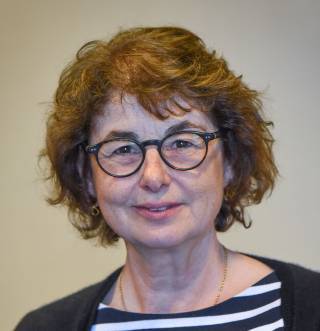
Professor Gill Bates is Professor in the Department of Neurodegenerative Diseases and a world leader in bench-to-bedside Huntington's disease research. Her research is focussed on understanding the molecular basis of Huntington’s disease and developing therapeutic interventions. Professor Bates joined UCL in May 2016 as Professor of Molecular Neuroscience, and Co-Director and co-founder of the UCL Huntington's Disease Centre alongside Professor Tabrizi. She has also been appointed as Vice Dean for Research for the Faculty of Brain Sciences.
Professor Bates has received a number of awards in recognition of her work, including the Society’s GlaxoSmithKline Prize in 1998 for her part in discovering the cause of Huntington’s disease. In addition to being a Fellow of the Society, she was also elected as a Fellow of the Academy of Medical Sciences in 1999 and as a member of EMBO, the European Molecular Biology Organisation, in 2002. In 2012 she won the Leslie Gehry Brenner Award for developing the first mouse model of Huntington's disease.
Professor Ying Li
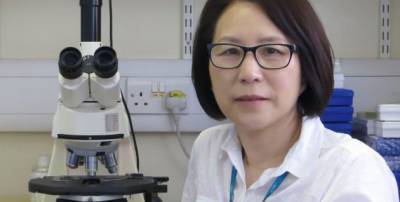
Professor Ying Li is Professor of Neurosciences in the Department of Brain Repair and Rehabilitation, and is the scientific lead for the Spinal Cord Repair Unit.
Professor Li is a renowned research scientist in the field of spinal cord injury repair by cell transplantation in experimental models. Professor Li's research group has transplanted cultured olfactory ensheathing cells (OECs) into lesioned rat spinal cord and found that the transplanted cells are able to induce regeneration of the cut nerve fibres and restore the original pathway.
Professor Janice Holton
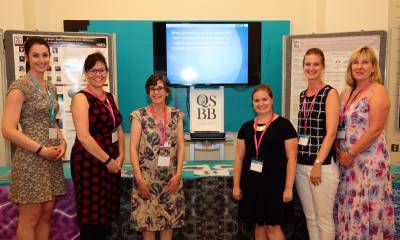
Professor Holton is Professor in Neuropathology, Honorary Consultant Neuropathologist and Director of Neuropathology at the Queen Square Brain Bank.
Her research is focused on inflammatory muscle disorders including inclusion body myosis.
Professor Anita Harding
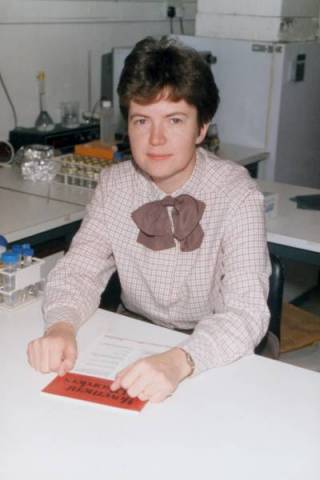
Professor Anita Harding became the first Professor of Clinical Neurology in the United Kingdom, and was the first to describe disorders due to Mitochondrial DNA mutations. Alongside with Ian Holt and John Morgan-Hughes, Harding described the "first identification of a mitochondrial DNA mutation in human disease and the concept of tissue heteroplasmy of mutant mitochondrial DNA", published in Nature in 1986.
Find out more about Professor Hardings life and contributions.
Nature journal has a new look as a tribute to Anita Harding:
"All Nature's text is now in a custom typeface called Harding, named in memory of Professor Anita Harding, an inspirational professor at UCL Queen Square Institute of Neurology who made important contributions to neurogenetics before her death at the age of just 42."
Full article available on Nature website.
Professor Clare Fowler

Professor Fowler, Emeritus Professor of Uro-neurology, became a senior house officer in the National Hospital for Neurology and Neurosurgery, and then specialised in clinical neurophysiology, before being appointed consultant. Since setting up the Department of Uro-Neurology at the National Hospital for Neurology and Neurosurgery in 1987, she and her team have led trials of various therapies that have advanced the field.Some of her most important work has centred on her discovery of Fowler's Syndrome, a disorder in which young women experience urinary retention. Clare was awarded a CBE in 2012 for services to uro-neurology.
"Not many physicians can claim to have started and developed their own subspecialty. But Clare Fowler, who has spent most of her career helping to treat and restore dignity and quality of life to patients with various conditions who have lost bladder control, has done just that with uro-neurology." (*)
- Professor Fowler's academic profile.
- (*) Kirby, T. (2015) Clare Fowler: establishing the subspecialty of uro-neurology. Lancet Neurology, VOLUME 14, ISSUE 7, P689, JULY 01, 2015
Professor Elizabeth Warrington
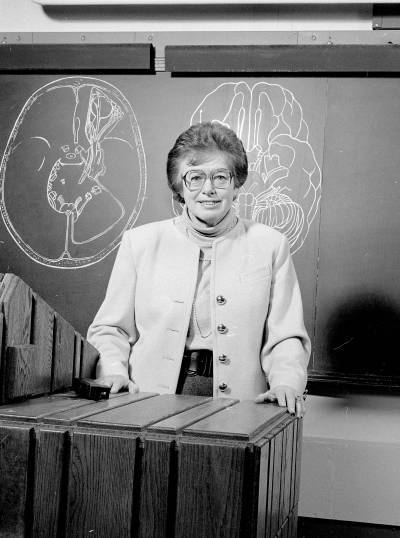
Professor Elizabeth Warrington FRS was appointed the first female Professor at the Institute of Neurology. The British Neuropsychological Society named their early careers research award the Elizabeth Warrington Prize.
 Close
Close

